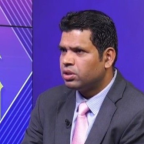The uncontrolled burning of municipal solid waste (MSW) is a significant source of air pollution in the developing countries, yet limited data exist to quantify the extent of open burning and associated factors. In many peri-urban areas, solid waste management facilities are lacking, resulting in open dumping and burning practices. This phenomenon directly contributes to greenhouse gas emissions and other air pollutants, which adversely impacts climate and human health in many ways. This project will be focused on two mega cities of the developing world, Kathmandu Metropolitan City (KMC) of Nepal (foothills of the Himalayas) and Dhaka City of Bangladesh (lowlands Ganges Delta), covering urban and peri-urban areas. This study will include field survey, transect walk, and real-world experimentations of waste burning parameters. Additional parameters and emission factors (EFs) will be taken from the literature. After multiplying the burned MSW mass by EFs, GHGs emissions for KMC and Dhaka City will be estimated. This study will present findings through spatio-temporal profiles covering at least two seasons (i.e., summer and winter). Moreover, results will be included for intervention scenarios from 2023-2050 in line with UN sustainable development goals and Paris agreement. These outcomes of the scenarios will be recommended for the national policy package and project interventions.
Project • CRRP2023-09MY-Das




